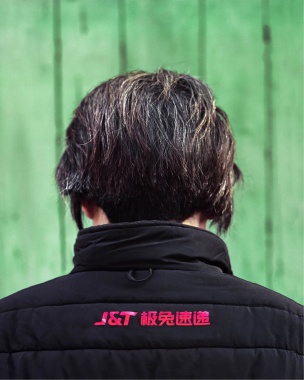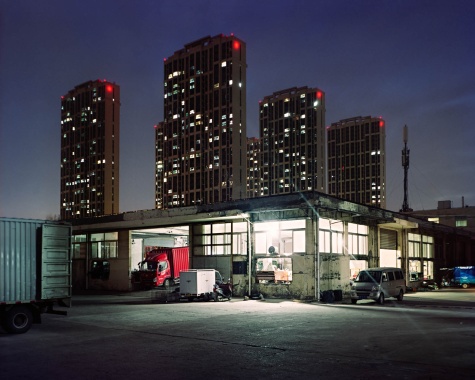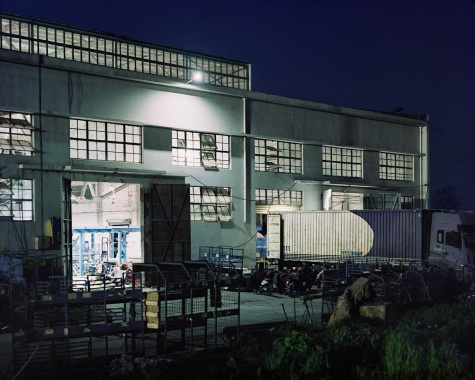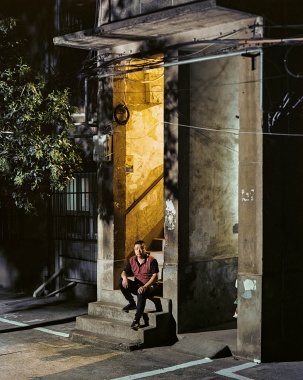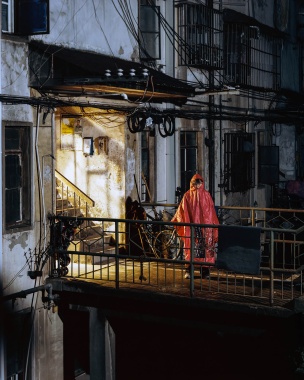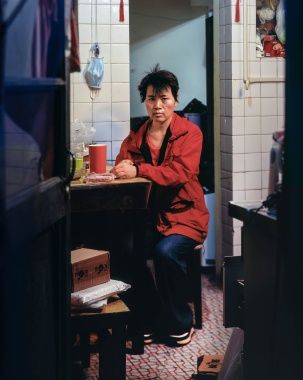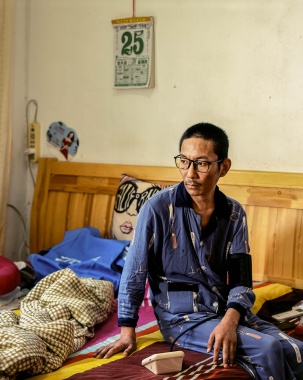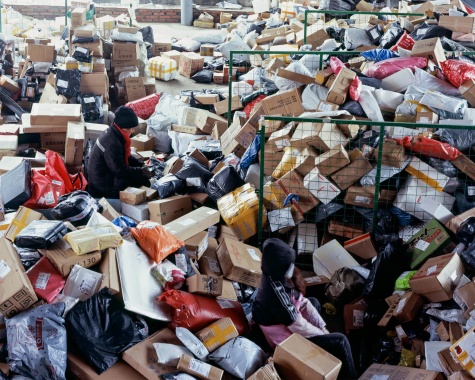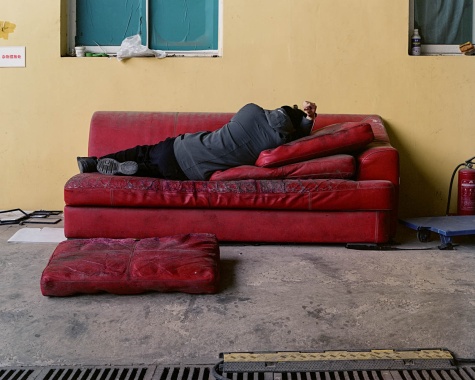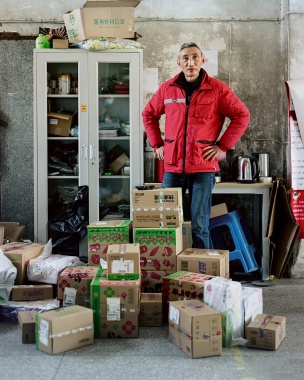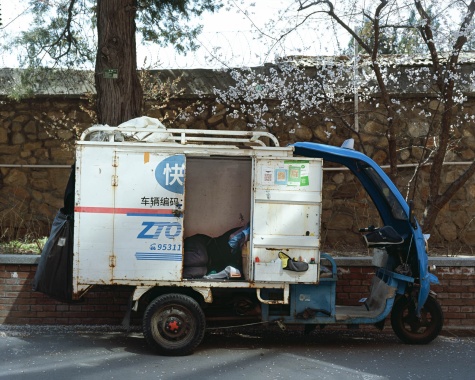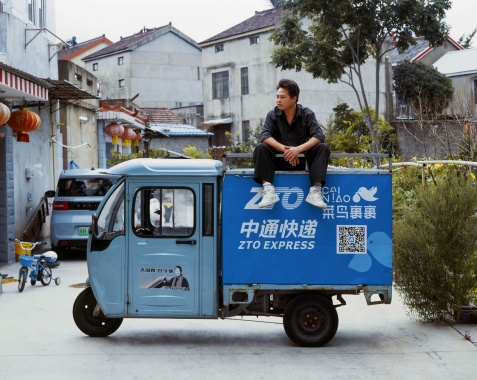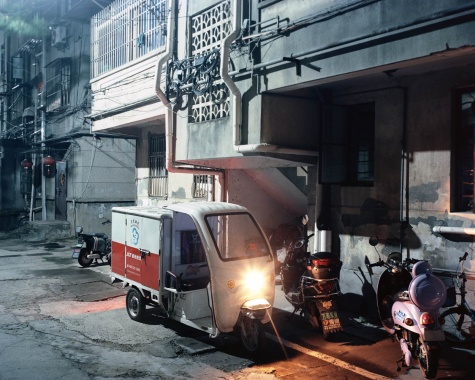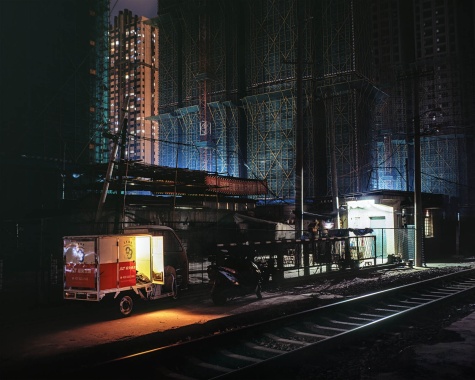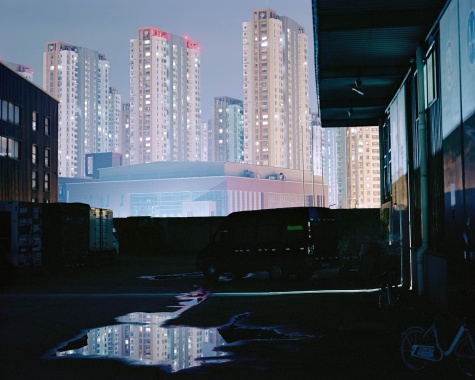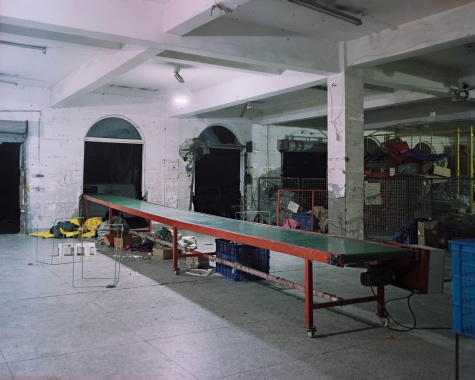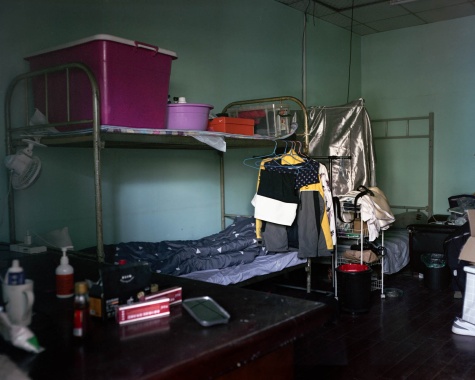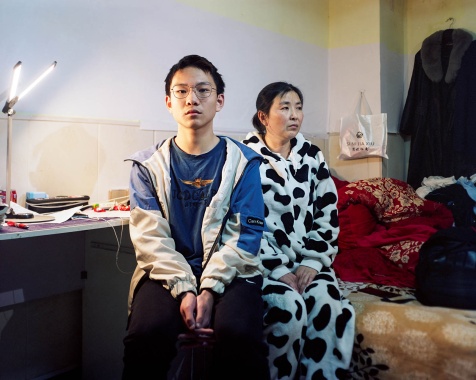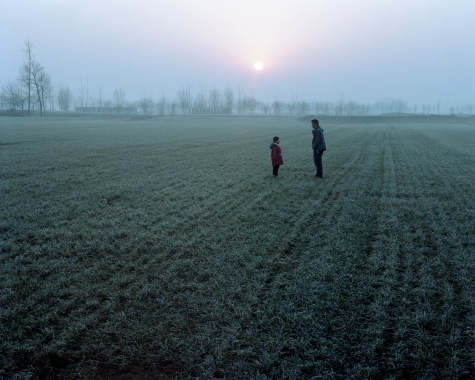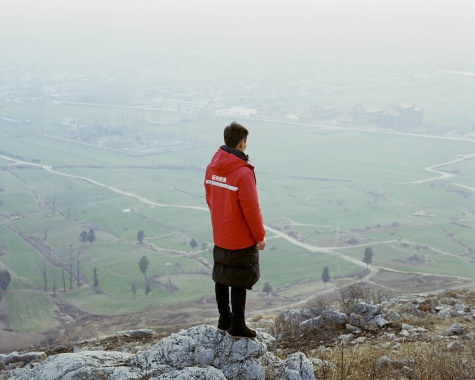Tong Niu: Express Delivery
Tong Niu’s project began with the idea of documenting the work of mothers: four years ago, the photographer immersed himself in China’s logistics and courier sector, and used it as an example to reflect the history of urbanisation and industry. His direct, yet very sensitive pictures tell about the lives of the messengers who moved from the village to the city, dreaming of getting a glimpse of the exciting world there.
2020 was the year of great changes. A virus overcame the world, paralysed it and drew unpredictable changes in its path. “This was the year the pandemic started, my mother lost her job, and J&T Express entered the Chinese market,” Tong Niu remembers. He had just been accepted into a Master’s programme and had begun to study Photography.
“This photography project became an outlet for my emotions, it brought me into the field of reality and made me think about my relationship with my mother and the courier, my relationship with the city and the question of survival.”
We have Tong Niu’s mother to thank for the start of the series. After losing her job, she was one of the first women workers to move from the country into the city, from the Jiangsu region in the east of the People’s Republic of China, to Nanjing, where she started to work for the newly launched courier service provider. One evening her son picked her up from work and took this photo: it shows the delivery warehouse after the rain; a van sits in the dark car park in the foreground, and the shining, modern skyscrapers of the city are reflected in a puddle. They rise up presumptuously in the distance, like a metaphor for the call to deliver the next order. Or, as Bertolt Brecht put it in his Threepenny Opera, “For some are in the dark and others are in the light. And you see those in the light, you don’t see those in the dark...“ And this is probably how these messenger services should be understood: as a sector in which the fate of other people is decided by online clicks. “Some of the people I shoot and talk to have a lot of outstanding debts, or have been made redundant and are too old to find suitable work; some need to support their children at school, and some are the important (and only) breadwinners in their families.”
“Gaining trust was the basis of the shoot, initially starting to reach out and put myself in their shoes through the internship, as well as helping them in any way I could.”
Since the first photograph he took in 2020, Tong Niu has immersed himself in the lives of those working in this sector: capturing them at work, in temporary shelters under a roof, and also in their home towns. Most of the couriers he photographs come from rural areas in Jiangsu and Anhui Province. He accompanies them throughout the spring, summer, autumn and winter, following the cycle of leaving the factory at night to returning to work during the day. His pictures are simple observations, but they speak of an entire social oeuvre consisting of mobility, migration, modernisation and dreams. Above all, however, they speak with sensitivity, subtlety and respect – while being free of any sense of voyeurism – about the more than three million people who work in this industry; of people who leave their families so that they can actually be there for them. As the most important traditional Chinese holiday, New Year, approaches, they return for a brief moment to their long-lost hometowns. Together with their loved ones, they welcome in the new year, which will be meant as both a beginning and a farewell.
Tong Niu’s project was submitted by Yining He, who was among this year’s 80 international LOBA nominators.
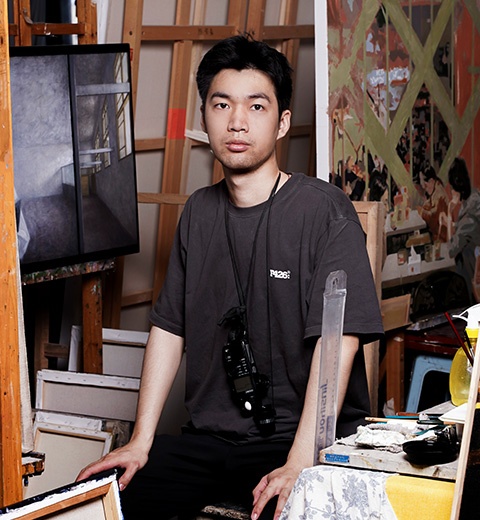
Tong Niu (牛童)
Tong Niu was born in 1998 in Nanjing, Jiangsu Province, China. He completed his studies at the Xi’an Academy of Fine Arts in 2023, with a degree in Photographic Art. As a young teacher, he is currently involved in image design and teaching, concentrating primarily on urbanisation and population migration. He is also deals in curatorial work.
Portrait: © Tong Niu
